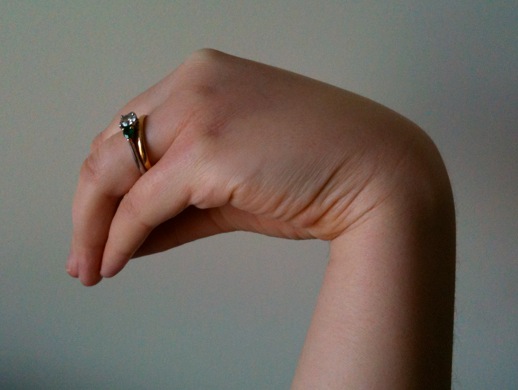Playlist
Show Playlist
Hide Playlist
Hypocalcemia: Differential Analysis of Causes
-
Slides Hypocalcemia EndocrinePathology.pdf
-
Download Lecture Overview
00:01 Let’s take a look at important differentials of hypocalcemia. 00:08 To begin with, let’s say that your patient began with having primary hypoparathyroidism and there was surgery that was done that we talked about earlier in which you remove too much parathyroid and may result in hypoparathyroidism. 00:23 Now, you have decreased reabsorption of calcium, thus resulting in hypocalcemia. 00:28 We’ll talk about psedohypoparathyroidism in great detail. 00:31 In other words, this is PTH resistance. 00:34 Be careful, I am not referring to PTH related peptide here. 00:41 Vitamin D deficiency, for whatever reason, and an inadequate oral intake. 00:45 Now, what you will find to be interesting with Vitamin D deficiency is the fact that, remember, we had a discussion of secondary hypoparathyroidism and the most common cause of Vitamin D deficiency in the United Sates is renal failure. 01:00 Now, a patient with renal failure is experiencing hypocalcemia. 01:09 Malabsorption could be a cause; end stage liver or kidney disease for reasons we just talked about. 01:16 Inadequate production or inadequate synthesis of calcitriol; liver, kidney in order; may manifest as osteomalacia, obviously referring to an adult who is deficient of Vitamin D due to these organ injuries. 01:31 Large blood transfusion, citrate is important for you to pay attention to in transfused blood can bind to calcium therefore, resulting in or rendering the patient hypocalcemic. 01:41 Remember, you need free ionized calcium for you to have proper functioning. 01:49 If any point in time calcium is bound excessively, your patient is considered to be hypocalcemic. 01:57 Magnesium dep-depletion is important, decreased in PTH release… magnesium depletion. 02:04 Three major times that you want to keep in mind - may result in the possible clinical manifestations of seizures, long QT syndrome and hypomagnesemia with decreased PTH release and therefore, as a consequence, hypocalcemia. 02:21 Also, any time that there is an increased alkalotic state, understand that now, the calcium will be excessively bound to albumin or increasingly bound to albumin, thus increasing the risk of hypocalcemia. 02:40 Acute pancreatitis where calcium will then bind to free fatty acid released by the lipase and therefore, may result in hypocalcemia. 02:49 In acute pancreatitis, you should be very familiar with that area that might be rather talked... like in that is saponification. 02:57 What else may cause hypocalcemia? Excessive tissue breakdown result in excess calcium binding to phosphate. 03:03 Any time that you find hyperphosphatemia, phosphate loves to bind to calcium therefore, once again, rendering the patient hypocalcemic. 03:12 Tumor lysis syndrome, rhabdomyolysis, conditions in which you’d find excess tissue breakdown. 03:19 Tumor lysis syndrome, two major consequences, meaning to say that your patient is suffering from a cancer. 03:26 Therefore, administration of therapy and chemotherapy may then result in excess breakdown of your cancer. 03:34 So, therefore, first may result in increased uric acid release which may result in hyperuricemia. 03:42 In addition to that increase in tissue breakdown may then bind to calcium, all of this resulting in hypocalcemia. 03:50 Rhabdomyolysis, for example, one of the rare side effects of statin drugs used in hyperlipidemia may result in rhabdomyolysis and thus, once again, may bind to excess calcium. 04:04 You’ll find that in many of these differentials of hypocalcemia that if calcium is bound, your patient’s hypocalcemic.
About the Lecture
The lecture Hypocalcemia: Differential Analysis of Causes by Carlo Raj, MD is from the course Parathyroid Gland Disorders.
Included Quiz Questions
Why is a patient with renal failure more likely to develop hypocalcemia?
- Vitamin D deficiency
- Hypoparathyroidism
- Decreased oral intake
- Malabsorption
- Increased citrate levels
In a state of acute respiratory alkalosis, what will calcium-binding increase?
- Albumin
- Citrate
- Vitamin D
- Magnesium
- Free fatty acids
A patient taking a statin for hyperlipidemia presents with hypocalcemia. If the serum CK is elevated, which lab should be checked to assess for rhabdomyolysis as the cause of hypocalcemia?
- Phosphate
- Magnesium
- Free fatty acids
- Albumin
- Vitamin D
Customer reviews
5,0 of 5 stars
| 5 Stars |
|
1 |
| 4 Stars |
|
0 |
| 3 Stars |
|
0 |
| 2 Stars |
|
0 |
| 1 Star |
|
0 |
Dr. Raj is one of the best professors I know !!! I cannot thank you enough for all of your hard work, Dr, Raj! You make students understand and think! Thank you, thank you, thank you so much!




